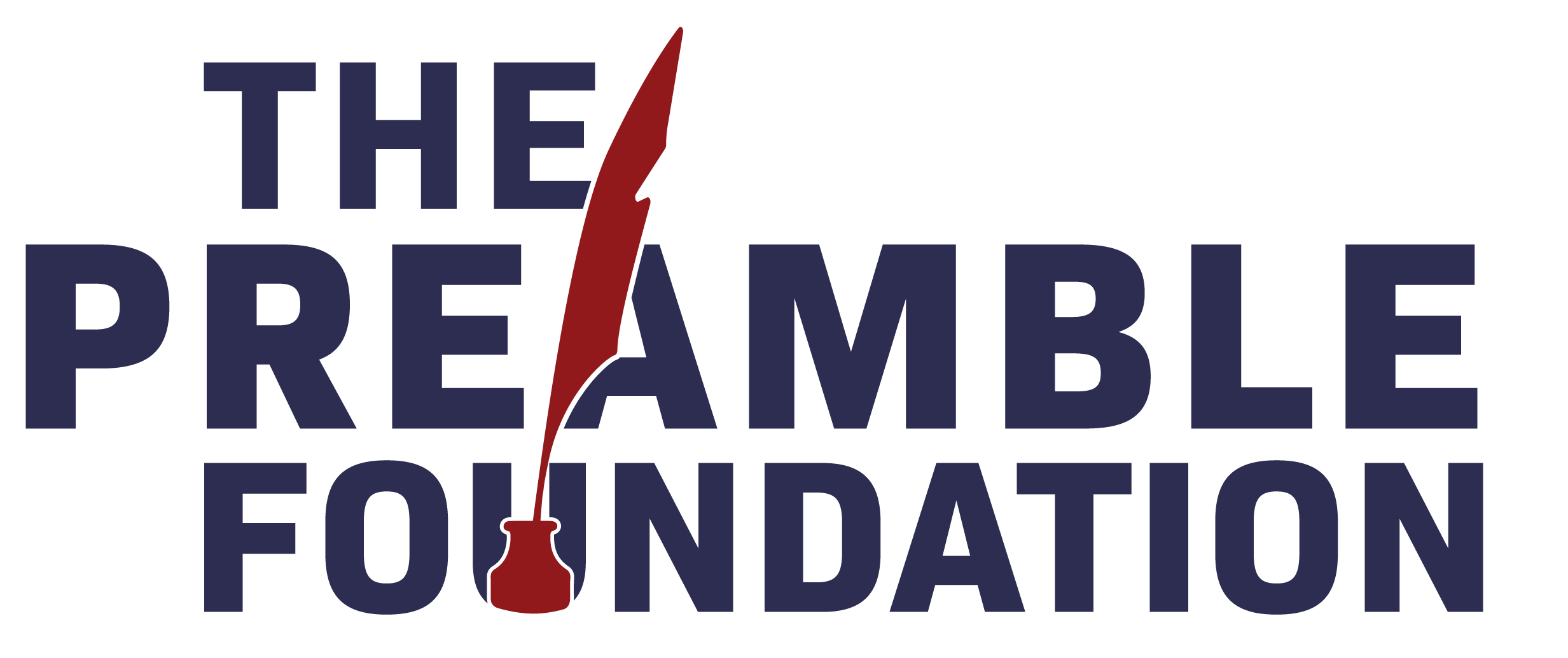The Preamble Foundation is a 501(c)(3) non-partisan, nonprofit media organization.
Our mission is the premise that the Preamble is the most basic and essential sentence every U.S. citizen should know and understand.
“We the People of the United States, in Order to form a more perfect Union, establish Justice, insure domestic Tranquility, provide for the common defense, promote the general Welfare, and secure the Blessings of Liberty to ourselves and our Posterity...”
The Preamble provides us with our primary mission statement and purpose of US government. It is our minimum level of consensus that all citizens own.
The Preamble Foundation takes a grassroots approach to teaching this core tenet of the Constitution. The Foundation promotes citizenship in the United States through engaging educational experiences.
We the People and our Constitution
People are the ultimate source of authority in a constitutional republic (aka representative democracy,) meaning they hold the power to shape their government. The government serves entirely on behalf of the people. Citizens elect representatives to make laws, govern, and represent their interests. Corporations, even US-based corporations, are not people and are not charted to act in the interest of the People of the United States. Corporations are legally bound to be entirely in the service of stockholder profitability. Their stockholders are everywhere on the globe—not just US citizens. Amost all large and mid-sized corporations are multinational, meaning companies that own or control production or service facilities in several countries.
No Hereditary Rule: Unlike a monarchy, a constitutional republic does not have a hereditary ruler or ruling class. However, the nine US Supreme Court justices are not elected and are appointed for life. By design, they are not representative of the people and do not answer to the People, which has been a source of turmoil in every decade of United States' history.
Checks and Balances: The US Constitution was designed to limit the power of the government, protect individual rights, and establish a system of checks and balances to prevent any one branch from holding all power. "Power corrupts, and absolute power corrupts absolutely." However, the balances of power that were assigned by the framers of the US Constitution in 1787 has, over time, shifted to the Executive Branch. The President now effectively exercises powers that were originally designated to the Legislative Branch. For example, presidents have commited US millitary forces around the globe without the sanction of the Legislative Branch's constitutional authority to declare war. Throughout US history, presidential "executive actions" have been constitutionally misused. Some examples include executive orders that infringe upon congressional power. Courts have struck down executive actions that violated existing laws or contradicted the Constitution but because presidents appoint Supreme Court justices, the Courts' rulings have often and regularly been highly influenced by the politics of the presidents that appointed them (long after those presidents have left office) and not necessarily the expressed desires and interests of the majority of US citizens.
Focus on the Common Good: Constitutional republicanism emphasizes the importance of laws and policies that benefit the public and advance the common good. As enshrined in the Preamble... establish Justice, insure domestic Tranquility, provide for the common defense, promote the general Welfare...
Freedom and Prosperity: Constitutional republics strive to prioritize individual freedoms and the opportunity for people to prosper. As enshrined in the Preamble.: ...secure the Blessings of Liberty to ourselves and our Posterity...
In essence, a representative democracy (aka constitutional republic) is a system where the people have a voice in their government and the power to shape its direction through the elected representatives they choose.
